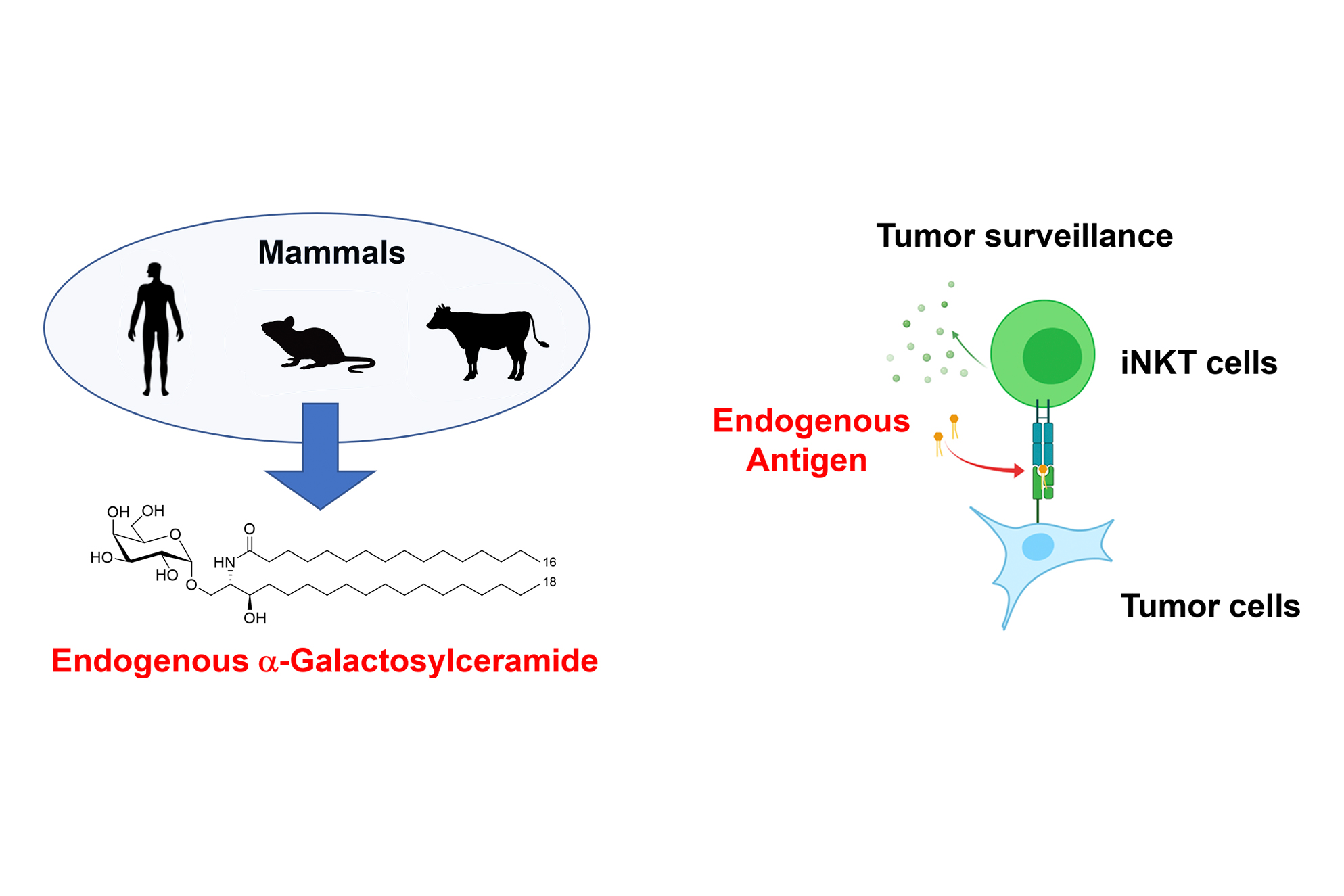Identification of alpha-galactosylceramide as an endogenous mammalian antigen for iNKT cells (Yamasaki Lab, in J. Exp. Med)
Invariant Natural killer T (iNKT) cells are unconventional T cells recognizing lipid antigens in a CD1d-restricted manner. Among these lipid antigens, a-galactosylceramide (a-GalCer), which was originally identified in marine sponges, is the most potent antigen. Although the presence of a-anomeric hexosylceramide and microbiota-derived branched a-GalCer is reported, antigenic a-GalCer has not been identified in mammals. Here, we developed a high-resolution separation and detection system, supercritical fluid chromatography tandem mass spectrometry (SFC/MS/MS), that can discriminate hexosylceramide diastereomers (a-GalCer, a-GlcCer, b-GalCer or b-GlcCer). The B16 melanoma tumor cell line does not activate iNKT cells; however, ectopic expression of CD1d was sufficient to activate iNKT cells without adding antigens. B16 melanoma was unlikely to generate iNKT cell antigens; instead, antigen activity was detected in cell culture serum. Activity-based purification and SFC/MS/MS identified dihydrosphingosine-based saturated a-GalCer as an antigenic component in serum, bile and lymphoid tissues. These results show the first evidence for the presence of potent antigenic a-GalCer in mammals.
This article was published in the Journal of Experimental Medicine, on December 20, 2024.
Title: “Identification of alpha-galactosylceramide as an endogenous mammalian antigen for iNKT cells”
Authors: Yuki Hosono, Noriyuki Tomiyasu, Hayato Kasai, Eri Ishikawa, Masatomo Takahashi, Akihiro Imamura, Hideharu Ishida, Federica Compostella, Hiroshi Kida, Atsushi Kumanogoh, Takeshi Bamba, Yoshihiro Izumi and Sho Yamasaki
Links
- Home
- Achievement
- Research Activities
- Identification of alpha-galactosylceramide as an endogenous mammalian antigen for iNKT cells (Yamasaki Lab, in J. Exp. Med)








